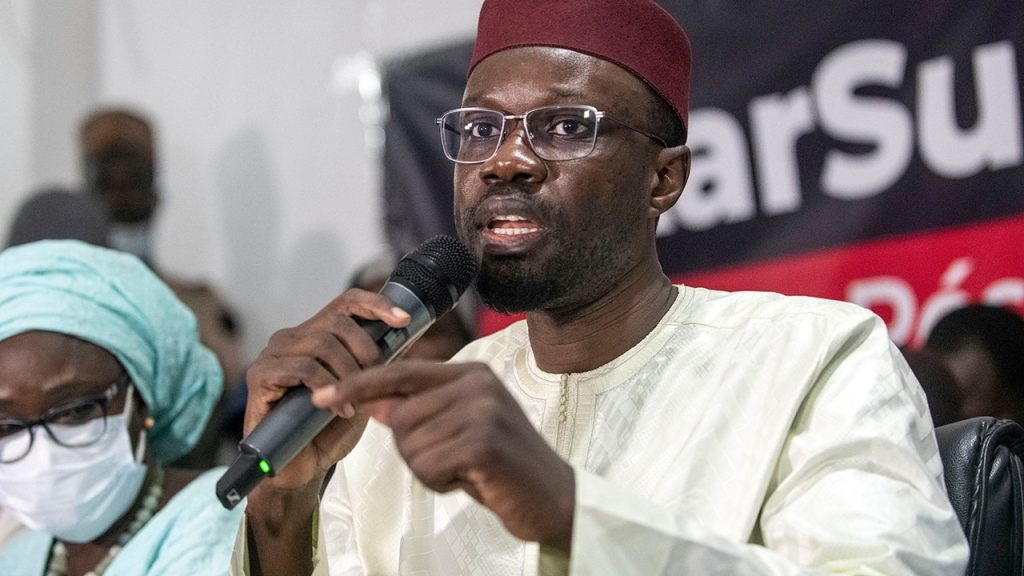Senegal’s new prime minister, Ousmane Sonko, who was recently released from jail and led his party to victory in the presidential election, has criticized the French military presence in the country. He believes that promoting values such as LGBTQ rights and monogamy, which are not in line with Senegalese values where polygamy is widely practiced, are not appropriate. Sonko, known for his anti-French sentiment, desires self-determination for Senegal and questions the long-term presence of foreign military bases in the country. France currently has about 350 troops in Senegal.
At an event in Dakar with the French far-left politician Jean-Luc Mélenchon, Sonko emphasized the need to reevaluate Senegal’s relationship with France. He warned that pushing for LGBTQ rights could potentially create conflict between the two nations, while Mélenchon defended same-sex marriage legislation in France. Senegal, a pillar of stability in the region, is likely to draw attention from Western allies due to Sonko’s criticisms. In response to recent political turmoil in neighboring countries, Sonko’s party has called for reform within the Economic Community of West African States (ECOWAS) to prevent further divisions.
Sonko’s victory in the presidential election in March was seen as a strong statement against French interference in Senegal’s affairs. His anti-colonial stance has resonated with many Senegalese who support the idea of self-determination. While Sonko acknowledges existing defense treaties with France and other countries, he believes that the country should reassess its relationships with foreign military forces. With the rise of coups in neighboring countries and the expulsion of French troops, Senegal’s approach to security and alliances in the region is under scrutiny.
Sonko’s criticism of ECOWAS for allowing divisions to grow within the region underscores his commitment to maintaining strong ties with neighboring countries. Despite the challenges faced by countries like Mali, Burkina Faso, and Niger, Sonko has pledged to support and strengthen relationships with them. The tension between French influence and African sovereignty is a key theme in Sonko’s political agenda, as he seeks to assert Senegal’s independence while navigating complex regional dynamics. The future of Senegal’s foreign policy and security strategy remains a topic of debate following Sonko’s election victory and his bold statements against foreign interference.
As Sonko continues to push for a reevaluation of Senegal’s relationship with France and other foreign powers, his leadership style and policy decisions will be closely scrutinized. His determination to uphold Senegalese values and traditions while also navigating global partnerships is a delicate balancing act. With rising tensions in the region and the need for strategic alliances to address security threats, Sonko’s leadership will be crucial in shaping Senegal’s future trajectory. The implications of his anti-French rhetoric and calls for autonomy will have far-reaching consequences for the country’s diplomatic relations and security posture in the West African region.













